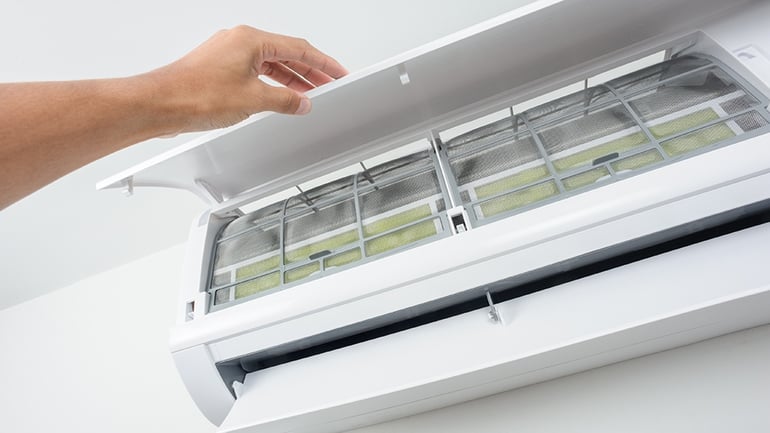
You might be asking, "Why is my air conditioning squealing?"
It’s important to realize that many air conditioners slightly squeal under normal operation. However, if unwelcome, loud squealing noises are keeping you and your family awake at night, it may be time to check on your HVAC.
Furnace: Squealing or screeching means that the furnace’s belt and/or motor bearing is having problems. These issues can be solved with the simple addition of the correct lubricating oil or an inexpensive repair from a professional.
Indoor or outdoor air conditioner:
Your indoor or outdoor unit could be squealing for a few of the following common reasons:
- The outdoor unit’s fan motor may be shot if its bearings aren’t functioning.
- The outdoor unit’s compressor has gone bad due to age or malfunction.
- The indoor unit’s blower motor is old or has malfunctioned.
- The indoor unit’s belt is worn or misaligned. The squealing can vary as different temperatures and humidity levels cause the belt to expand and contract.
There are a few other noises that parts of your home’s HVAC system could be making, in which case you should follow our advice below:
A quiet rush of air is reasonable to hear from the ductwork, but if you hear a hiss, the coolant is leaking and the ducts are improperly sealed. This requires immediate attention from an HVAC team.
If you hear a trumpeting or hissing sound from the compressor motor when you shut down the heat pump, you have a leaky internal refrigerant valve. Check with a specialist to schedule an appointment for repair.
This home appliance can make a number of unsettling noises due to all of its components and parts. Each troubling sound means something different, so here’s Warner Service’s breakdown:
- Rattling can be caused by a variety of reasons. Check out Why Is My Air Conditioning Rattling? for answers.
- Banging noises indicate that you need to shut off your entire furnace because a large part of it needs to be checked out by an expert and replaced immediately.
- A “thwapping” sound is typically indicative of something stuck in the fan blades. This problem isn’t dangerous, but it could hinder the longevity of the system’s motor, so carefully shut off the blower and remove the roadblock.
- Clicking is typically heard when you turn the system on and off. However, if it’s coming from the control panel or outside compressor, reset the system.
- Furnace vibrations sound similar to an out-of-balance washing machine because the motor is most likely off balance. This isn’t a devastating issue, but it shouldn’t be ignored. Call a specialist as soon as possible.
- If you have a gas or oil-fired system, and you hear an unusual rumbling sound associated with combustion, call for service immediately.
- Buzzing means that your A/C unit is wearing down from time. Begin looking for a replacement appliance as soon as you can.
- A chirping noise is usually a sign that two parts are rubbing together without proper lubrication. If it’s short and high-pitched, the best way to diagnose the issue is to wait a few minutes and write down what happens.
If the sound goes away, the issue is likely minor. In this case, take your notes to an HVAC technician during your next maintenance visit. If it doesn’t go away, call an expert for closer examination.
We hope that we’ve covered enough basics for you to diagnose small air conditioning problems in your home. If you need a little more help, download our HVAC Maintenance Checklist:
You can also call for a professional diagnosis. Contact Warner Service or schedule an air conditioning service appointment today.


